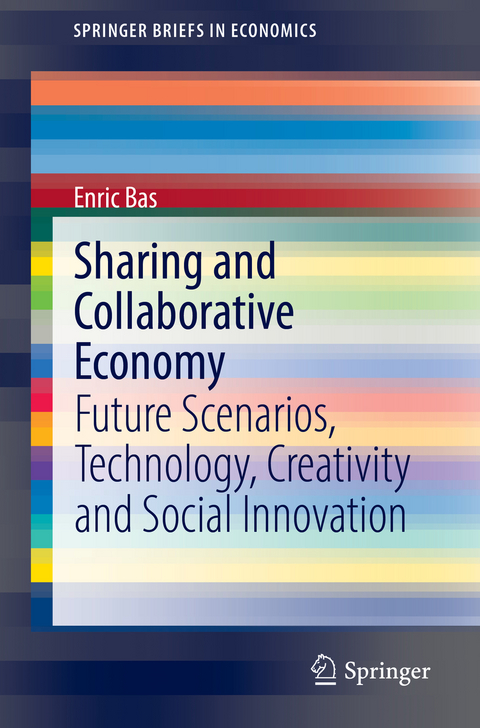
Sharing and Collaborative Economy
Springer International Publishing (Verlag)
978-3-030-93881-9 (ISBN)
The book subsequently presents three plausible scenarios for ShE as the outcome of this analysis in the horizon of 2030: 1) the probable future, balancing neoliberalism: the shared/collaborative economy as a new third way, 2) the contingent/rupturist future, hypercapitalism: neoliberalism on steroids, or the collaborative paradigm as a trojan horse, and 3) the preferable future, postcapitalism, or the sharing economy as the poster child of the 4th industrial revolution. It connects these three scenarios with a change of paradigm where horizontal management, cultural diversity, social responsibility, climate change management, and the transformative power of radical creativity and participation are finally getting a leading role in the design of brand new ways of approaching a more integrative and sustainable business and economy.
lt;p> Enric Bas is Professor of Social Change and Communication, and Participatory Foresight and Social Innovation, at the School of Economics of the University of Alicante (Spain) and Director of FUTURLAB-Creative Futures at the University of Alicante (UA). He currently is a Guest Visiting Scholar at the German cluster of excellence ´CLICCS- Climatic, Climatic Change and Society´ led by UHH-University of Hamburg (Germany) and Max Planck Institute, as well as many other academic and research institutions worldwide. Further, Bas is an Editorial Board Member of multiple scientific journals and book series, a former Executive Board member of the WFSF-World Futures Studies Federation (2000-2005), and the European Futurists Conference Lucerne-Switzerland (2005-2012). He is a member of Techcast-Global (GWU) since the early 2000s, and the ´SFRI-Strategic Foresight for Research and Innovation´ experts' group of the European Commission; currently he is working as an expert in FoD (Foresight on Demand) projects for the European Union. Bas is interested in exploring the future, understanding complexity, implementing creativity, and stimulating proactivity; either for/with organizations (either business-oriented, public, or NGOs) and/or individuals (mainly young and elder people).
Chapter 1. Introduction.- Chapter 2. Why Foresight?.- Chapter 3. Horizon Scanning.- Chapter 4. Futures Mind-Map.- Chapter 5. Scenarios for 2030.- Chapter 6. Conclusions.
| Erscheinungsdatum | 04.02.2022 |
|---|---|
| Reihe/Serie | SpringerBriefs in Economics |
| Zusatzinfo | XV, 81 p. |
| Verlagsort | Cham |
| Sprache | englisch |
| Maße | 155 x 235 mm |
| Gewicht | 168 g |
| Themenwelt | Wirtschaft ► Volkswirtschaftslehre ► Makroökonomie |
| Schlagworte | Bottom-up processes • Collaborative economy • Creativity • Digital ubiquity • Foresight • future scenarios • Hyper capitalism • liquid society • New Economy • Open processes • Participatory Processes • Shared Economy • social change • Social Innovation |
| ISBN-10 | 3-030-93881-6 / 3030938816 |
| ISBN-13 | 978-3-030-93881-9 / 9783030938819 |
| Zustand | Neuware |
| Haben Sie eine Frage zum Produkt? |
aus dem Bereich


